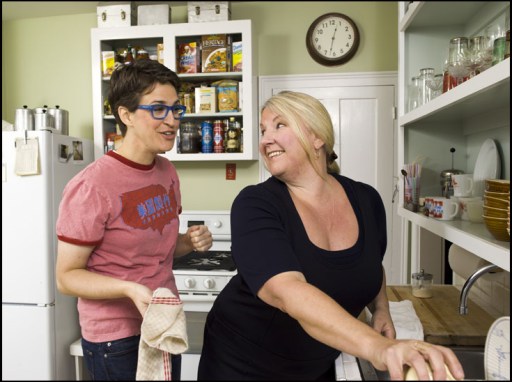L
isten to your elders. We were constantly taught this growing up, yet we seldom did very. We had our very own road to carve away.
It is not uncommon throughout levels of society for people to typically overlook the views of elderly people. The debate and conversation across wedding equivalence Postal study has viewed no exception to this, with view getting wanted from various young couples and people who will be maybe considered becoming of an age that will be the majority of impacted by a general change in the Marriage Act.
We’ve heard many elder voices getting broadcast. These are generally, however, generally from those people that would like to see relationship equality achieved, so that they too may wed. For a number of, there is a desperate sense of time running out. They’ve waited decades.
Those against or ambivalent toward matrimony are not generally getting heard within argument. I understand this. We’re battling more difficult than in the past for an outcome and tend to be reluctant to include gas into “No” flame, specifically from our very own society.
Experiencing their particular views really does, but lead you to knowledge from the reputation for equivalent legal rights spanning the years, and ought to never be put aside in our dialogue. Instead of shrugging all of them off, possibly we could begin looking at the elders through a lens which broadens the ideas of our own devote the timeline of activism and equivalence. In this situation, perhaps it is time to pay attention to the elders.
I
letter 2015, David Hardy released the wonderful anthology
BOLD: tales of earlier gay, lesbian, bisexual, transgender and intersex men and women
. It permitted for stories to-be heard from all those who have been living quietly for a long time. We provided to this number of tales with a piece to my beloved friends Phyllis and Francesca. These females continue to be satisfied feminists, and from 1970 forwards, when they started existence with each other as one or two, they invested a great amount of time supporting lesbians who were pursuing a feeling of belonging, and associations. Within my portion, We provide some viewpoint about dilemmas of importance to that generation of activists.
“â¦we must remember concerns were different to the lesbians of Phyllis and Francesca’s era. There are those maybe not promoting for wedding between same-sex couples in 1970, many just wanting to raise the general public profile of lesbians and deal with the personal stigma affixed⦠the aims with the ALM (Australian Lesbian activity) alongside gay and women’s liberation teams were significantly dissimilar to lots of companies now with an existing target relationship equivalence.”

Just what happened to be the views towards matrimony more generally? Lots of have reflected that matrimony had been regarded as a failed and impaired institution, but in addition as a symbol of women’s inequality in community. Just were a lot of lesbians in opposition to standard plans, but therefore also happened to be feminists a lot more broadly, no matter their unique sexuality. As I discovered:
“Lesbians had been effective forces in feminist motion into the seventies, and wedding was seen as a symbol of the oppression of women is put aside in conjunction with magnificence cardboard boxes and corsets.”
The fact all of our trans friends are now being omitted in the legislative picture can be a stumbling block for several foes of marriage within our neighborhood, and I also understand Phyllis and that I have discussed this really worry. We dare say this need to be all of our subsequent mission.
Obviously, whilst we have a great deal to learn from our LGBTIQ parents, esteem is actually a two way street and we also as more youthful queers have a great deal to show. Precisely what does relationship mean to us? For some, its symbolic of the conclusion heteronormativity therefore the final unicorn of equality! It’s a juggernaut which includes today just arrive past an acceptable limit to allow it vanish into a political wasteland. We now have endured a lot of misuse to let it sleep.
H
ow we see all of our elders, and their encounters as well as their set in the queer area â plus broadly â deserves discussing today.
Archer Mag
features, in its concerted attempts to end up being including all, already been one program that locations the sex and connections of older people during the limelight. Our elders have a sex life, they’ve needs, opinions and encounters that individuals ought to get worried with. In the end, how we treat our very own parents is a very clear and stark glimpse into our personal futures. Do you ever like everything you see?
Basically could, i’d pair right up younger LGBTIQ men and women each with an elder mentor, since advantageous assets to this connection could well be extensive both for events. We possibly may never like what all of our parents tell us, however it is however worth a listen. Since marriage equality argument comes to an end, that is a lesson we need to discover for the future fights.

Belinda features a desire for storytelling and voiced term poetry, with a love of queer record and tales of identity, migration plus the urban landscaping. In 2014, she and her lover Cecile Knight introduced the self-published book CO_The artistic Couples venture. She has been printed inside the Victorian publisher, n-SCRIBE, Mamamia.com, writingqueensland.com and 2015 anthology BOLD: stories from older lesbians, homosexual, bisexual, transgender and intersex men and women by David Hardy, released because of the Rag and Bone Man click, and interviewed on SBS Italian radio discussing the Same Sex Matrimony postal vote as a queer Italian-Australian (shortly is broadcast). In 2017, Belinda was picked for ACT authors center HARDCOPY professional development program for Non-Fiction for her recent manuscript, the home utilizing the Columns.


